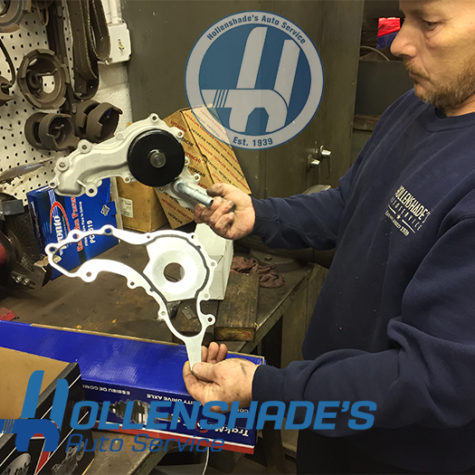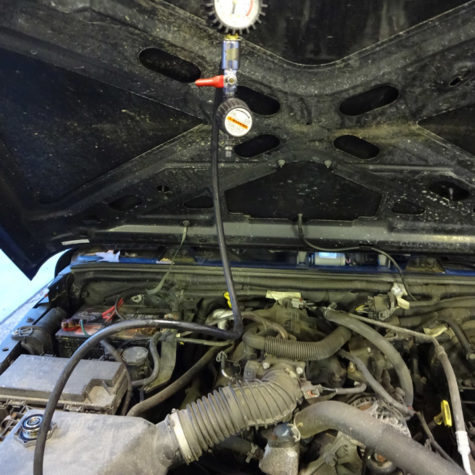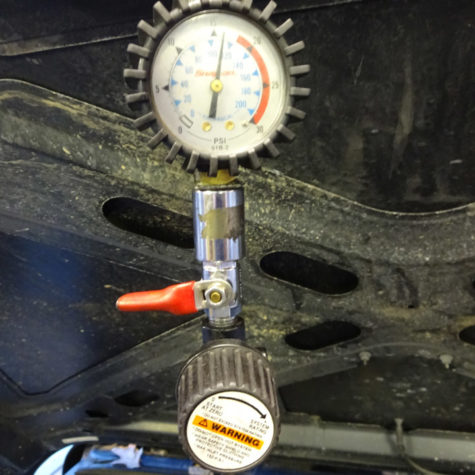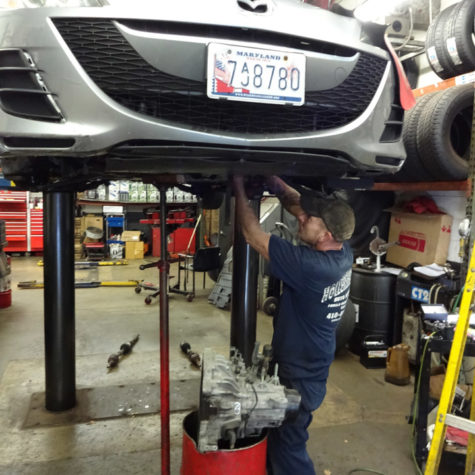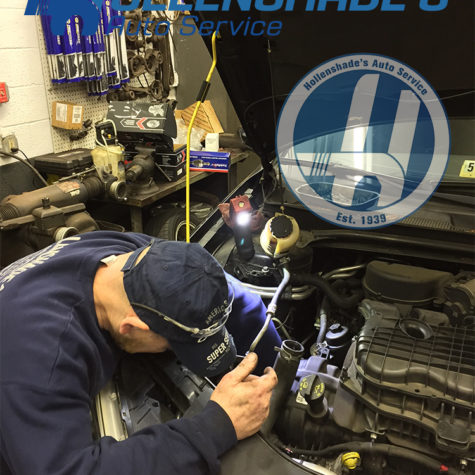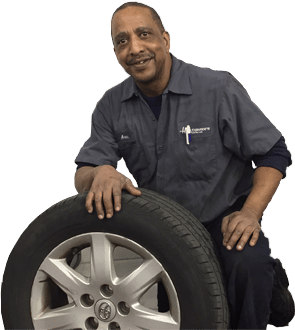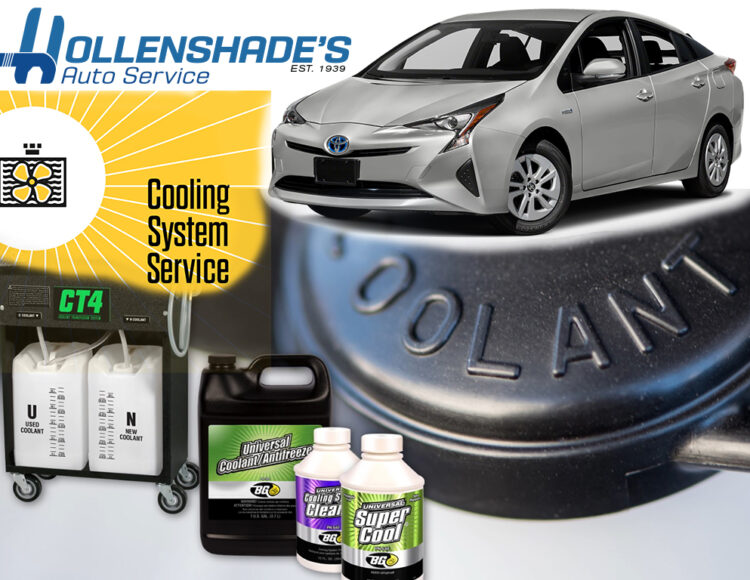
Cooling System
The most effective way to test the cooling system is to pressurize the system with compressed air using a specialized pressure test tool.
Places to check for coolant system leaks include the areas around the coolant pump, intake gaskets on some vehicles, coolant hose connections to the engine and radiator, as well as the engine block core plugs.
Caution!! The pressure of the coolant within the cooling system can be considerably higher when the coolant is hot. Removing the pressure cap while the engine is hot causes the coolant to boil instantaneously, with explosive force. Scalding fluid and steam may blow out, resulting in serious injury.
The water pump circulates coolant through the entire cooling system. The water pump is typically belt driven by the engine. Though there are some applications where it is driven directly from an engine component without a belt. The volume of coolant circulated is proportional to engine RPM. As the engine spins faster, the pump moves coolant faster. Electric water pumps are driven by an electric motor. The speed of the pump/coolant circulation is not dependent on engine RPM.
Engine coolant is vital to maintaining optimal engine operating temperature. Deteriorated or contaminated coolant can cause poor fuel economy due to inefficient cooling of the engine, cause premature cooling system failures, and could potentially result in damage to internal engine components. Replacing engine coolant and flushing the cooling system at the recommended intervals ensures that the cooling system continues to perform properly and that the engine is not in danger of overheating or freezing.



